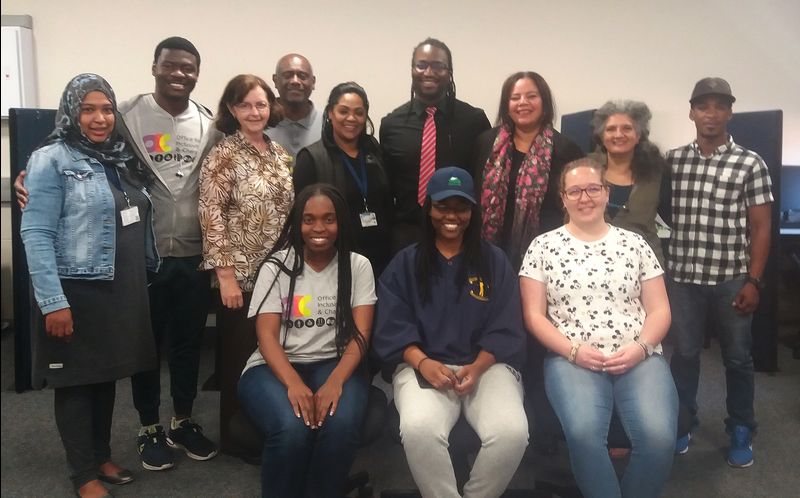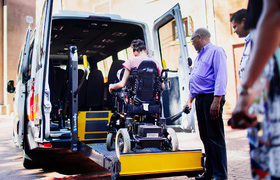Growing exam support for students with disabilities
18 December 2019 | Story Helen Swingler. Photo Supplied. Read time 3 min.
The recent exam season saw almost 200 University of Cape Town (UCT) students with a variety of disabilities write 502 exams at Disability Service venues around campus. It took a dedicated team to effect the wide ranging support needed.
This suite of support included the Examinations Office, campus protection and logistics assistance from the Properties and Services department as well as a host of scribes and other disability service volunteers to ensure comfortable venues and conducive exam conditions.
Nerves of steel are needed to coordinate the holistic range of services for 502 individual exam sessions. Disability Service falls within the Office for Inclusivity & Change (OIC).
OIC director Dr Sianne Alves said, “UCT is committed to the equitable inclusion of students and staff with disabilities. The work of these staff, led by manager Edwina Ghall, ensures that our students receive the support services needed to ensure their success.”
Disability Service clinical psychologist Beulah Marks and her colleague Denise Oldham, direct services specialist, are at the forefront of these formidable logistics. They liaise with the many role players to ensure everything runs like clockwork. And, at the Disability Office it’s all hands on deck to support students who write at their headquarters, currently in the John Day Building.
“Nerves of steel are needed to coordinate services for 502 exams.”
Though the Disability Service supports the full inclusion of their students at mainstream exam venues, individualised accommodations are needed for those with specific disabilities. These are: chronic, hearing, motor, speech, learning, hand, psychological, visual and temporary impairments, and those who use wheelchairs.
The office’s support extends to providing drivers and specialised transport for those with permanent or temporary mobility difficulties, scribes to write for those who have dyslexia or can’t write or type independently, and South African sign language interpreters.
Other accommodations or adaptations provided are: the use of computers for students with handwriting difficulties; assistive software such as Zoom text, JAWS or Text Help Read and Write Literacy software; Dragon NaturallySpeaking software for those dictating their answers to scribes or using the Dragon NaturallySpeaking software; assistive furniture such as podiums or kneeling chairs for students with chronic back conditions or chronic illness; and students with medical or mental health concerns that require a secluded writing environment.
Over and above the service offering, the OIC hosted a national seminar at UCT with stakeholders from South African universities, civil society and government to advance the research on and practice of signing within the university context.
All exam periods are catered for: June, November, postgraduate exams and the January deferred exams.
As the university has grown, there has been a steady rise in the demand for these services. There has also been a steady rise in the number of exams written by students with disabilities through the centre. This has risen from 123 in June 2017 to 199 this November; and an increase from 393 exams in 2017 to 502 in 2019.
 This work is licensed under a Creative Commons Attribution-NoDerivatives 4.0 International License.
This work is licensed under a Creative Commons Attribution-NoDerivatives 4.0 International License.
Please view the republishing articles page for more information.










